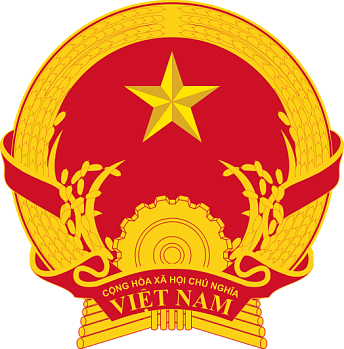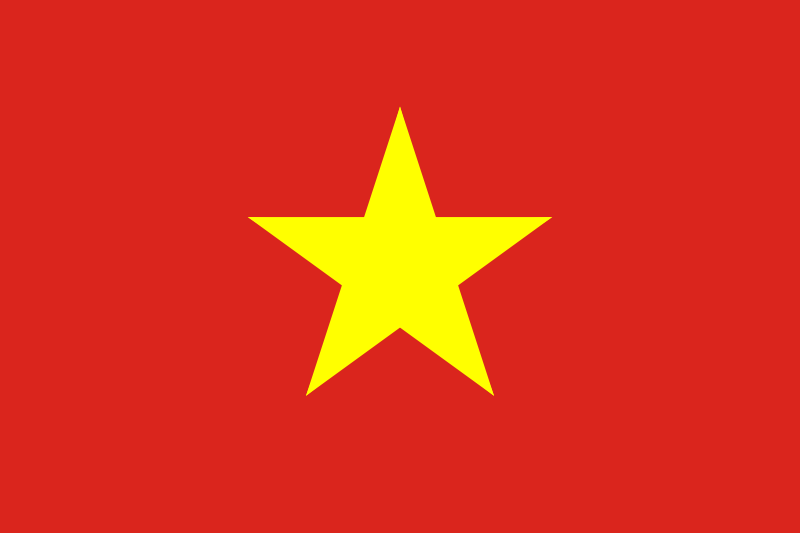 die Sozialistische Republik Vietnam
die Sozialistische Republik Vietnam
Foreign Minister Sergey Lavrov’s statement and answers to media questions following talks with Foreign Minister of the Socialist Republic of Vietnam Bui Thanh Son, Hanoi, July 6, 2022
We have completed the first part of our visit to the Socialist Republic of Vietnam. I had lengthy and intensive talks with Foreign Minister Bui Thanh Son. We discussed bilateral relations primarily as they apply to implementing the agreements reached by the presidents of our countries in late 2021, and as part of implementing the Joint Statement on Strengthening the Comprehensive Strategic Partnership between the Russian Federation and the Socialist Republic of Vietnam which marks its 10th anniversary this year.
We had an in-depth discussion on international affairs, our cooperation at the UN and processes unfolding in the Asia-Pacific region with an emphasis on enhancing Russia-ASEAN strategic partnership. We addressed the challenges that the US-led Western countries are creating for the global economy. We have an understanding of how to push forward our trade and economic and investment ties in these circumstances to secure them against the impact of illegal unilateral sanctions imposed by the United States, the EU and their allies in that region.
The talks were held at the most opportune time and made it possible for us to outline specific steps to deepen cooperation across all areas without exception, including the humanitarian sphere, education and defence cooperation.
Question: Relations between our countries are expanding and they have a strategic nature. What’s your take on the Vietnamese companies being willing to remain present in the Russian market amid the sanctions and with the United States putting pressure on international businesses that have chosen to stay in Russia?
Sergey Lavrov: Vietnamese businesses are well aware of the relevance and benefits of continued economic and investment ties with the Russian Federation. We enjoy close and structured cooperation in the energy sector. Joint companies engage in hydrocarbon production and deliveries to international markets. Today, we reaffirmed the fact that these enterprises will remain operational. We discussed other trade and economy-related projects, including in the car industry, healthcare and pharmaceuticals, to name a few.
Importantly, despite the pandemic-related restrictions and illegal sanctions, our trade grew by a quarter in 2021, and this trend has remained stable in the first months of this year. I think the numbers speak for themselves.
Question: Can you comment on Kiev's statements that the Russian army is allegedly shelling Russian cities in order to thwart Western weapons supplies to Ukraine?
Sergey Lavrov: In a nutshell, the answer is they are lying. The facts are well known and presented by our Defence Ministry on a daily basis. Regardless of the interpretations that President Zelensky and his team may have made, the West must be aware of the responsibility for civilian casualties, primarily in Donbass and other parts of Ukraine, where Kiev is using these weapons against civilians, largely as a means of intimidation. This is state-sponsored terrorism.
Question: A number of G20 Western members have previously issued calls to have Russia excluded from this format. Have any specific steps been made to obstruct your participation in the talks in Bali? If so, why did they fail?
Sergey Lavrov: I’m not sure whether there were any or not. We have received invitations from the Indonesian side to attend a Foreign Ministers’ Meeting which opens tomorrow in Bali and the G20 summit in November. If there were such attempts, the Indonesian leadership let them go unnoticed.
Question: Last weekend, Vladimir Putin's confidential talks with Emmanuel Macron were made public by Paris. If this is a new approach to diplomacy, how is the Foreign Ministry approaching sensitive talks now? Is it possible to prevent such leaks?
Sergey Lavrov: We negotiate in a way that means we will never be ashamed of what we say. It’s a matter of principle. We always say what we think. We are prepared to stand by what we say and make our position clear. I believe that leaking the details of a conversation is not in accord with diplomatic ethics. We have already commented on this situation.
A record of my talks with the foreign ministers of Germany and France was made public once. Back then, we were still working within the Normandy format and we had for a long time been trying to persuade Berlin and Paris into telling Kiev to stop sabotaging the implementation of the Minsk agreements that had been agreed upon during the pivotal phase, with the participation of the Germans and the French and which were subsequently approved by the UN Security Council. Seen from the perspective of the double standards adopted by my colleagues - the foreign ministers of France and Germany - their responses to these arguments were quite telling. Positioning themselves as guarantors of the Minsk agreements, they did their best to “whitewash” Kiev and justify its transparent desire to disrupt the implementation of these agreements. Mr Poroshenko is now claiming that when he signed the Minsk agreements he was not really planning to implement them. According to him, he wanted to buy time and to obtain Western weapons in order to get back at us. This is an objective fact. Now, we can safely assume that Berlin and Paris were covering up for the Kiev regime as a way of supporting these actions and the logic behind them. Before my talks with my colleagues from France and Germany were made public, we notified them on three occasions that if we did not receive clarification regarding them rejecting the documents that had been agreed upon, with their direct participation, we would have to make our discussions public. Paris and Berlin responded with silence on three occasions. Obviously, there is still a “small” difference here.
Question: What are your expectations for the G20 [meeting]? Who do you plan to meet there bilaterally?
Sergey Lavrov: The G20 has its own agenda. We will be addressing the issues on the agenda. As regards bilateral meetings, there are several requests, and there will be several meetings.
Question: What is the purpose of your visit to Vietnam? And what are the main results of the bilateral talks held this morning? Did you discuss the Russia-Ukraine issue with your counterpart, and how did the Vietnamese side respond to it?
Sergey Lavrov: The purpose of this visit is to promote our comprehensive strategic partnership. This is a return visit, after Foreign Minister of the Socialist Republic of Vietnam Bui Thanh Son visited me in Moscow last September. We exchange visits annually, so it is an absolutely normal diplomatic practice.
Regarding the agenda, we discussed everything, including the situation which derived from the Western policy to create a threat to the Russian Federation on Ukrainian soil and to support neo-Nazi policies of the regime in Kiev, and the policies which are openly Russophobic.
I express my appreciation for the very balanced, objective position of Vietnam, which is demonstrated by the refusal of Hanoi to join the illegal sanctions, and which is demonstrated by its desire to develop full-fledged cooperation with the Russian Federation both in bilateral sectors and in the international arena.








